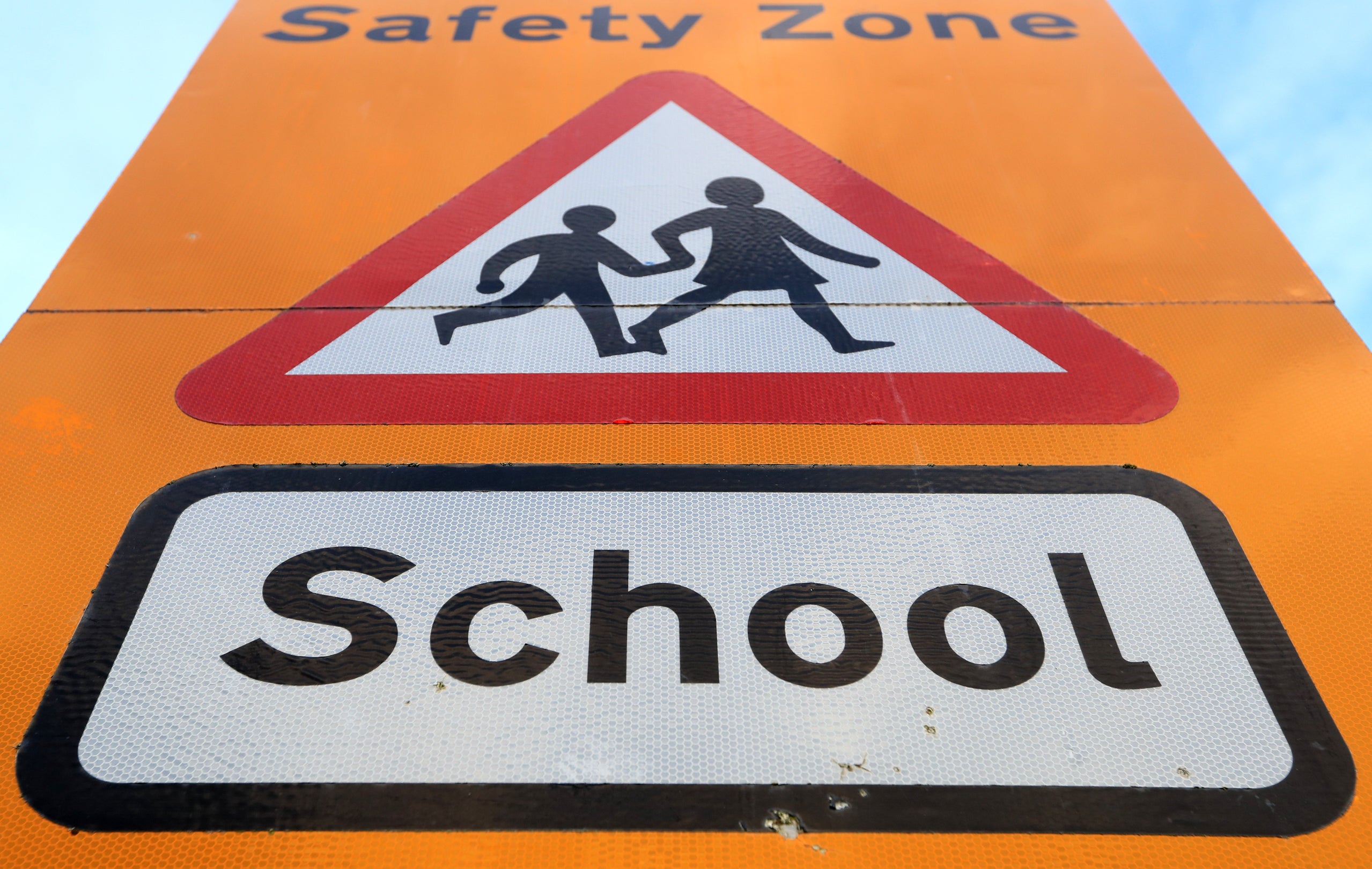Education Secretary promises new Ofsted powers in crackdown on illegal schools
It is thought tens of thousands of children could be in unregistered schools across England.

Your support helps us to tell the story
From reproductive rights to climate change to Big Tech, The Independent is on the ground when the story is developing. Whether it's investigating the financials of Elon Musk's pro-Trump PAC or producing our latest documentary, 'The A Word', which shines a light on the American women fighting for reproductive rights, we know how important it is to parse out the facts from the messaging.
At such a critical moment in US history, we need reporters on the ground. Your donation allows us to keep sending journalists to speak to both sides of the story.
The Independent is trusted by Americans across the entire political spectrum. And unlike many other quality news outlets, we choose not to lock Americans out of our reporting and analysis with paywalls. We believe quality journalism should be available to everyone, paid for by those who can afford it.
Your support makes all the difference.The Education Secretary has pledged a crackdown on illegal schools, which it is thought tens of thousands of children in England could be attending.
Nadhim Zahawi confirmed there would be “stronger powers” for the schools watchdog Ofsted to tackle such settings, with new legislation planned requiring councils to maintain a register of children who are not in school.
Ofsted’s chief inspector Amanda Spielman said such schools are often run by people from “very separate communities”, including religious ones, who view the separation as “extremely important”.
She described conditions in some “that you wouldn’t want to put a dog in, let alone a child”.
Ministers hope the new powers will be in a Schools Bill as part of the Queen’s Speech, the Sunday Times newspaper said.
Asked how widespread unregistered schools are, Ms Spielman told Times Radio: “It’s hard to get an idea of the scale precisely because these aren’t registered schools, but we’ve visited several hundred now.
“And the likely number of children being educated in unregistered establishments is probably into tens of thousands, rather (than) still in single-digit thousands.”
Children in these schools are often growing up simply ignorant of so much that we expect all children to know to be able to fit into British society as adults
Asked if the new reported powers would “fix everything”, Ms Spielman said: “Of course they won’t fix everything, and just to put it in context, I think nobody contemplated when the legislation around schools was put in, that somebody would want to carry on running a school illegally after it had been pointed out to them that they needed to register and comply with the law.
“But that’s what’s happened and increasingly over the years we’re seeing more people doing this. There are some loopholes in the way the law is structured.”
She said currently Ofsted cannot collect evidence and inspect what appear to be unregistered schools, “unless people choose to let us do so”, and that the inspectorate has “limited powers” to ask for police assistance.
She said while unregistered schools have “existed for longer than most people realise”, it has “certainly grown in recent years” and that five schools have been prosecuted for operating illegally.
Ms Spielman said: “The wider estimates of how many children are not in school, how many children are designated as electively home-educated, has grown very significantly in recent years. It’s estimated to be something like 115,000 at the moment, and of those, a proportion are actually in illegal schools.
“There are five schools so far that have been prosecuted for running illegally, and in four of those, the children were claimed to be being educated by their parents at home, but were in fact in an illegal school. So a proportion of that number is going to be in illegal schools.”
She said such schools are often run by people from “very separate communities”.
Asked if she meant religious communities, Ms Spielman said: “Often religious, yes, for whom that separation is so important that they’re willing to sacrifice all the things that we expect as a minimum for all British children, whichever school they’re in.
“So children in these schools are often growing up simply ignorant of so much that we expect all children to know to be able to fit into British society as adults, to have enough knowledge of the world around them and to be able to make the adult choices that we all have to make about how we want to live our adult lives.”
Ms Spielman described how “overwhelmingly” unregistered schools are “of very poor quality”.
She said: “Children are often getting a really bad education there. They’re often being taught by unqualified staff who haven’t been DBS-checked, who really shouldn’t be teaching children.
“The physical conditions are often dreadful – we’ve seen things that you wouldn’t want to put a dog in, let alone a child, with broken windows, trailing electrical flexes, literally broken wires. There are a great many really, really undesirable places in this category.”
Mr Zahawi said: “My mission is to make sure each and every child has the opportunity to fulfil their potential, and for the overwhelming majority of children that starts with spending time in school, with brilliant teachers.
“But our expectations can be no different for those who receive their education at home. So many home educating families do a fantastic job, but there are still too many children falling through the cracks, at risk of harm in unsafe settings like illegal unregistered schools.
“That’s why we will be introducing new legislation requiring councils to maintain a register of children who are not in school, helping eliminate the concept of ‘ghost children’, alongside stronger powers for Ofsted to crackdown on illegal schools and (to) ensure the criminals who are running them face prosecution.”